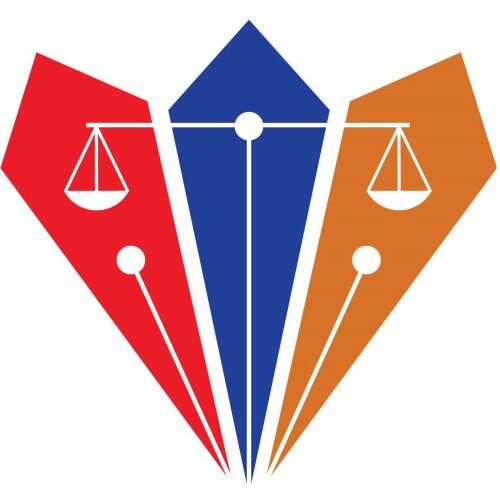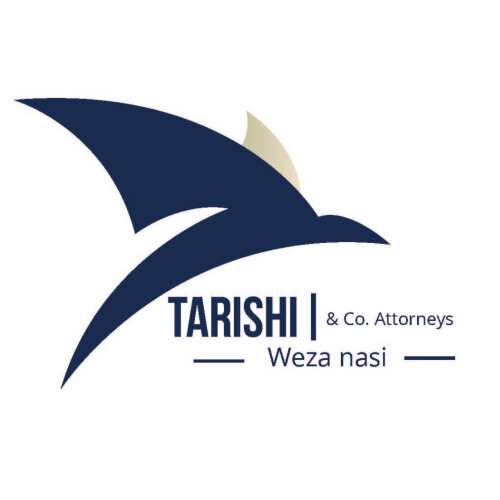Best Renewable & Alternative Energy Lawyers in Dar es Salaam
Share your needs with us, get contacted by law firms.
Free. Takes 2 min.
List of the best lawyers in Dar es Salaam, Tanzania
About Renewable & Alternative Energy Law in Dar es Salaam, Tanzania
Dar es Salaam, as the commercial hub of Tanzania, has emerged as a key center for renewable and alternative energy development. With the nation striving to increase electricity access, support economic growth, and reduce carbon emissions, renewable resources such as solar, wind, hydro, and biomass are steadily becoming integral to the city's energy mix. Renewable and alternative energy law in Dar es Salaam encompasses a variety of legal disciplines, including energy policy, environmental protection, land use regulations, and investment frameworks. The legal landscape supports the government's goal of achieving a cleaner energy future, while balancing social, environmental, and commercial interests.
Why You May Need a Lawyer
Engaging with renewable and alternative energy projects often requires navigating regulatory approvals, securing land rights, obtaining financing, complying with environmental standards, and negotiating contracts with government agencies and private entities. Some common situations where legal assistance is highly beneficial include:
- Negotiating Power Purchase Agreements (PPAs) with utility providers.
- Understanding and applying for relevant licenses and permits from the Energy and Water Utilities Regulatory Authority (EWURA).
- Assessing land acquisition and usage rights for energy projects.
- Managing environmental impact assessments and compliance with environmental laws.
- Structuring and securing project finance for renewable energy developments.
- Negotiating joint ventures or partnerships with local or international investors.
- Navigating tax incentives, subsidies, and government grants specific to renewable energy.
- Addressing disputes or litigation related to project execution or energy supply contracts.
An experienced lawyer can help protect your interests, ensure compliance, and resolve challenges efficiently.
Local Laws Overview
Several key laws and regulations form the backbone of renewable and alternative energy in Dar es Salaam:
- The Electricity Act - Provides for the development and regulation of the electricity sector, enabling private sector participation and outlining licensing procedures.
- The Energy and Water Utilities Regulatory Authority Act - Establishes EWURA, which issues licenses and enforces compliance for energy projects.
- The Environmental Management Act - Requires environmental impact assessments for significant energy projects and outlines procedures for environmental approval.
- The Land Act and Village Land Act - Regulate land acquisition processes, which are crucial for siting renewable energy installations.
- Investment Act - Outlines incentives for qualified energy projects and offers investor protection.
- National Energy Policy - Guides the overall strategy for the sector, emphasizing renewable energy adoption.
Compliance with these laws is essential for anyone wishing to invest, develop, or operate renewable energy projects in Dar es Salaam. The regulatory process can be complex, requiring careful navigation and due diligence.
Frequently Asked Questions
What types of renewable energy are most common in Dar es Salaam?
Solar and small-scale hydroelectric projects are currently the most common, with growing interest in wind and biomass energy solutions.
Do I need a license to operate a renewable energy project?
Yes, all renewable energy projects require various licenses and permits, typically from EWURA and local authorities, before commencing operations.
How can I acquire land for a renewable energy project?
Land acquisition is regulated by the Land Act and Village Land Act. It usually involves leasehold arrangements, due diligence on land ownership, and approval from authorities.
What government incentives exist for renewable energy investments?
The Tanzania Investment Centre may offer tax exemptions, import duty relief, and other incentives for eligible projects under the Investment Act and policies promoting renewable energy.
Are there requirements for environmental impact assessments?
Most renewable energy projects must undergo an environmental impact assessment in line with the Environmental Management Act before project approval and implementation.
Who regulates the renewable energy sector?
EWURA is the main regulator, overseeing licensing, standards, and compliance for renewable energy projects in Dar es Salaam and the wider Tanzania.
Can foreign companies invest in renewable energy in Tanzania?
Yes, foreign investment is encouraged, subject to compliance with investment laws, local content requirements, and sector-specific regulations.
What are Power Purchase Agreements and why are they important?
PPAs are legal contracts between energy producers and buyers (often utilities) that outline the terms for selling electricity generated by renewable projects. They are crucial for project financing and revenue security.
What happens if there is a dispute over a renewable energy project?
Disputes can be resolved through negotiation, mediation, arbitration, or litigation, depending on contract terms and applicable laws. Legal advice is recommended for navigating such processes.
How long does it take to get approvals for a renewable energy project?
The time frame varies depending on project size and complexity. It may take several months to over a year to secure all necessary permits, conduct environmental reviews, and complete other regulatory steps.
Additional Resources
For further information or assistance, the following resources may be helpful:
- Energy and Water Utilities Regulatory Authority (EWURA) - For licensing and regulatory guidance.
- Tanzania Investment Centre - For information on investment incentives and procedures.
- Ministry of Energy - For updates on policy and sector development.
- National Environment Management Council (NEMC) - For environmental compliance and EIA requirements.
- Local law firms with energy and environmental expertise.
- Industry associations such as the Tanzania Renewable Energy Association (TAREA).
Next Steps
If you are considering involvement in renewable or alternative energy in Dar es Salaam, it is important to seek proper legal guidance from the start. Here are recommended next steps:
- Clearly define your project goals and identify the type of support you need.
- Consult with a licensed lawyer who specializes in energy, land, or environmental law in Tanzania.
- Prepare relevant documents and information about your project proposal.
- Engage with regulators such as EWURA or NEMC to understand compliance requirements.
- Stay updated on sector developments and regulatory changes.
Taking these steps will help you efficiently navigate legal procedures, minimize risks, and successfully participate in Dar es Salaam's growing renewable and alternative energy sector.
Lawzana helps you find the best lawyers and law firms in Dar es Salaam through a curated and pre-screened list of qualified legal professionals. Our platform offers rankings and detailed profiles of attorneys and law firms, allowing you to compare based on practice areas, including Renewable & Alternative Energy, experience, and client feedback.
Each profile includes a description of the firm's areas of practice, client reviews, team members and partners, year of establishment, spoken languages, office locations, contact information, social media presence, and any published articles or resources. Most firms on our platform speak English and are experienced in both local and international legal matters.
Get a quote from top-rated law firms in Dar es Salaam, Tanzania — quickly, securely, and without unnecessary hassle.
Disclaimer:
The information provided on this page is for general informational purposes only and does not constitute legal advice. While we strive to ensure the accuracy and relevance of the content, legal information may change over time, and interpretations of the law can vary. You should always consult with a qualified legal professional for advice specific to your situation.
We disclaim all liability for actions taken or not taken based on the content of this page. If you believe any information is incorrect or outdated, please contact us, and we will review and update it where appropriate.













